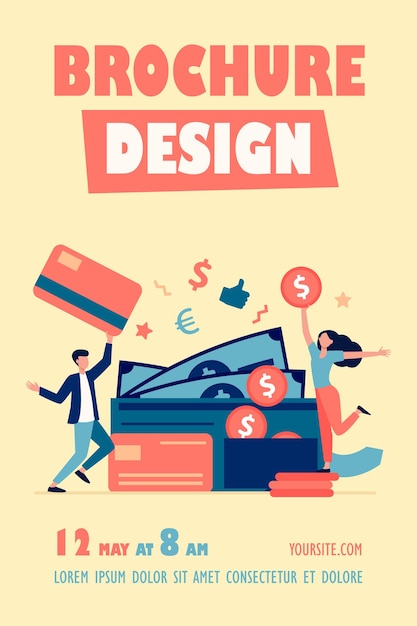
Paying off credit card debt can be really tough, especially if you have a lot of it, but it’s definitely doable with some effort and time.
When you look at credit card statistics, you’ll see that many people are in the same boat. Since the pandemic, consumer spending has increased, leading to higher debt levels, particularly on credit cards. If this debt is left unpaid, it can seriously harm your finances. That’s why it’s crucial to learn how to pay off credit card debt.
Carrying large credit card balances can be stressful and keep you from achieving financial peace. This guide offers various strategies to pay off your credit card balances, save money, and improve your financial health.
First, start paying for your purchases with cash, checks, or debit cards. Only use your credit cards when you have little to no balance. Otherwise, you’ll just keep increasing your debt.
Keeping a close eye on your budget is essential. Make sure you’re saving more than you’re spending. Review your budget monthly and track your spending, especially when you need to save money and have high credit card balances.
Look for quick ways to cut discretionary spending on non-essential items. Cancel subscriptions, eat at home more, sell unwanted items, and find ways to earn extra income. These steps will help you build savings to pay down debt and become more financially secure.
Paying only the required minimum amount on your credit card doesn’t help or hurt your credit score, but it won’t make much of a dent in your debt either. By paying your entire balance, you avoid high finance charges.
Card issuers benefit when you pay only the minimum because they can charge high interest rates, leading to growing balances that can be hard to pay off. For example, if you have a $2,500 balance at age 22 and only pay the minimum, you could still be paying it off at age 37, with finance charges amounting to $6,750!
The Credit Card Act of 2009 requires issuers to provide Minimum Payment Warnings, showing how long it will take to pay off the balance and the total interest you’ll pay. Pay as much of the balance as possible if you can’t pay the entire amount.
As you find extra savings from reduced spending, mortgage refinancing, debt consolidation, windfalls, or extra income, use them to pay down your card balances. Also, make sure to refresh your emergency fund if you use some of these savings to pay off debt.
The snowball method involves paying off credit card debts from the smallest balance to the largest, regardless of the interest rate. This method helps you get quick wins and stay motivated by paying off small amounts first.
On the other hand, the avalanche method focuses on paying off the highest interest rate debts first. For instance, if you have five credit cards with varying interest rates, you would start with the one with the highest rate.
Debt consolidation combines all your credit card debt into a single loan or line of credit with a lower interest rate. This can reduce your monthly payments and help you pay off your debt faster.
Options for debt consolidation include refinancing your mortgage, taking out a home equity line of credit (HELOC), or using a zero-balance transfer credit card. Each option has its benefits and drawbacks, so choose the one that best fits your situation.
A personal loan is another way to consolidate high-interest credit card debt into a lower-interest loan. The loan term typically ranges from 12 to 60 months and may have upfront fees.
If you receive a financial windfall like a tax refund, bonus, or inheritance, use it to pay off your debt. Taking on a second job or working longer hours can also help you tackle your debt.
Borrowing from a family member can be a quick way to pay off your credit card debt, but make sure to set clear terms to avoid any misunderstandings or family drama.
You can also reach out to your creditors to negotiate a new payment plan. They may offer repayment or hardship plans to help you avoid bankruptcy.
If you’re overwhelmed with debt, consider using a debt settlement company. They can help you settle your debt for less than you owe, but they charge high fees and it can impact your credit score for seven years.
A nonprofit credit counseling agency (CCA) can help you create a debt management plan and negotiate with creditors for reduced interest rates. They also offer financial education and budgeting assistance.
In extreme cases, consider bankruptcy through Chapter 13 or Chapter 7. Bankruptcy can help you discharge some debts, but it remains on your credit record for ten years and affects your ability to rent housing, get loans, or find a job.
There are many ways to pay off your credit card debt, but it’s important to start as soon as possible. Once you eliminate your credit card balances, plan to pay your entire balance each month and cut out non-essential spending to stay debt-free.